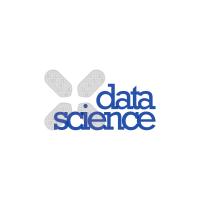Proceedings,
RSWeb '12: Proceedings of the 4th ACM RecSys workshop on Recommender systems and the social web
New York, NY, USA, ACM, (2012)609126.
Abstract
The new opportunities for applying recommendation techniques within Social Web platforms and applications as well as the various new sources of information which have become available in the Web 2.0 and can be incorporated in future recommender applications are a strong driving factor in current recommender system research for various reasons:</p> <p>(1) Social systems by their definition encourage interaction between users and both online content and other users, thus generating new sources of knowledge for recommender systems. Web 2.0 users explicitly provide personal information and implicitly express preferences through their interactions with others and the system (e.g. commenting, friending, rating, etc.). These various new sources of knowledge can be leveraged to improve recommendation techniques and develop new strategies which focus on social recommendation.</p> <p>(2) New application areas for recommender systems emerge with the popularity of the Social Web. Recommenders cannot only be used to sort and filter Web 2.0 and social network information, they can also support users in the information sharing process, e.g., by recommending suitable tags during folksonomy development.</p> <p>(3) Recommender technology can assist Social Web systems through increasing adoption and participation and sustaining membership. Through targeted and timely intervention which stimulates traffic and interaction, recommender technology can play its role in sustaining the success of the Social Web.</p> <p>(4) The Social Web also presents new challenges for recommender systems, such as the complicated nature of human-to-human interaction which comes into play when recommending people and can require more interactive and richer recommender systems user interfaces.</p> <p>The technical papers appearing in these proceedings aim to explore and understand challenges and new opportunities for recommender systems in the Social Web and were selected in a formal review process by an international program committee.</p> <p>Overall, we received 13 paper submissions from 12 different countries, out of which 7 long papers and 1 short paper were selected for presentation and inclusion in the proceedings. The submitted papers addressed a variety of topics related to Social Web recommender systems from the use of microblogging data for personalization over new tag recommendation approaches to social media-based personalization of news.



